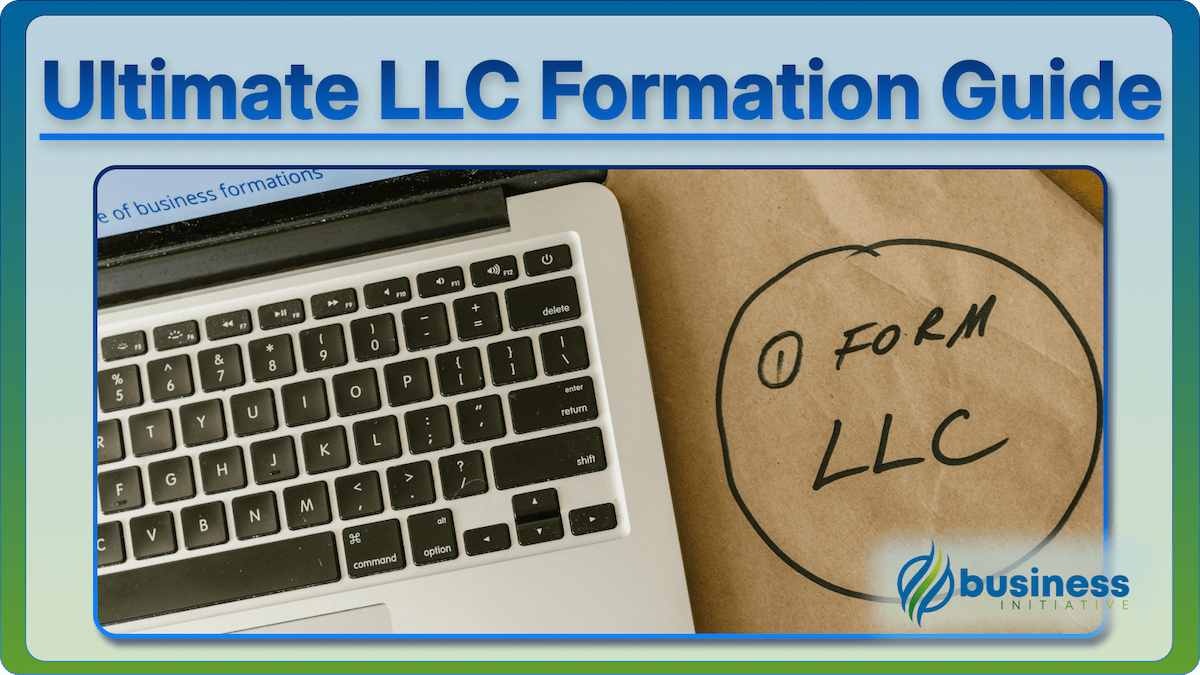You’re forming your business.
You want to protect your family. You don’t know what address to use. You’re worried about privacy.
Privacy-first formation protects your family.
What address to use. Where to use it. How registered agent services help. Your privacy strategy.
This guide shows you how.
Privacy strategy. Address planning. Formation structure. Family protection.
Read this. Plan your privacy. Protect your family.
 Key Takeaways
Key Takeaways
- Use registered agent service address for all public records—this keeps your home address private and protects your family from unwanted visitors
- Never use your home address as registered agent address—this exposes your family to process servers, competitors, and security risks
- Use registered agent address for state filings, business licenses, and any public documents—keep home address completely separate
- You can use a business address or virtual address for mail, but registered agent is required for legal documents and public records
- Privacy-first formation costs around $125/year for registered agent service—minimal cost for essential family protection
 Table of Contents
Table of Contents

Why Privacy-First Matters
Privacy-first formation protects your family.
What happens without privacy-first formation:
- Home address in public records
- Process servers at your door
- Unwanted visitors
- Family security risks
- Competitor research
What happens with privacy-first formation:
- Home address stays private
- Professional business address
- Family protection
- Reduced security risks
- Peace of mind
The reality: Privacy-first formation is essential for family protection.
What Addresses You Need
You need different addresses for different purposes:
Registered Agent Address
What it is:
- Professional business address
- Used for legal documents
- Required in all states
- Public record
Where to get it:
- Registered agent service
- Professional provider
- Business address
Why it matters: This is the address that appears in public records. It should never be your home address.
Business Mailing Address
What it is:
- Address for business mail
- Not necessarily public record
- Can be different from registered agent
Where to get it:
- Virtual address service
- Business office
- PO Box (some states)
Why it matters: This is for regular mail, not legal documents.
Home Address
What it is:
- Your personal residence
- Should never be public
- Keep completely private
Where to use it:
- Nowhere in public records
- Private use only
- Never as registered agent
Why it matters: Your home address should never appear in business filings.
Pro tip: Use registered agent service address for all public records. Keep your home address completely private. See our registered agent guide for service options.

Where to Use Each Address
Use the right address in the right place:
State Formation Filings
What address to use:
- Registered agent address (required)
- Never your home address
Why it matters: This is public record. Your home address would be exposed.
Business Licenses
What address to use:
- Registered agent address or business address
- Never your home address
Why it matters: Business licenses are often public record.
Tax Filings
What address to use:
- Business address or registered agent address
- Home address only if required (rare)
Why it matters: Tax filings may be private, but use business address when possible.
Bank Accounts
What address to use:
- Business address
- Registered agent address if needed
Why it matters: Banks need a business address, not your home address.
Marketing Materials
What address to use:
- Business address
- Virtual address if needed
Why it matters: Marketing materials don’t need your home address.
Pro tip: Use registered agent address for all public records. Use business address for everything else. Never use your home address.
Privacy Strategy
Follow this privacy strategy:
Step 1: Get Registered Agent Service
What to do:
- Choose professional registered agent service
- Get business address for public records
- Set up service before filing
Why it matters: This protects your home address from public records.
Step 2: Plan Your Addresses
What to do:
- Registered agent address for public records
- Business address for mail and operations
- Home address stays private
Why it matters: Planning prevents mistakes.
Step 3: Use Right Address
What to do:
- Use registered agent address in all filings
- Use business address for mail
- Never use home address
Why it matters: Using the right address protects privacy.
Step 4: Monitor Public Records
What to do:
- Check state business records
- Verify registered agent address is used
- Ensure home address is not exposed
Why it matters: Monitoring catches mistakes early.
Pro tip: Follow this strategy from day one. It’s easier to protect privacy from the start than to fix exposure later.

Formation Structure
Structure your formation for privacy:
Registered Agent Setup
What to do:
- Use professional registered agent service
- Use their business address
- Set up before filing
Why it matters: This is your privacy foundation.
Formation Filing
What to do:
- Use registered agent address in all fields
- Never include home address
- Double-check before submitting
Why it matters: Formation filings are public record.
Business License Applications
What to do:
- Use registered agent or business address
- Never use home address
- Check if license is public record
Why it matters: Business licenses may be public record.
Ongoing Compliance
What to do:
- Use registered agent address for all filings
- Keep home address private
- Update addresses if you move
Why it matters: Ongoing compliance maintains privacy.
Pro tip: Structure everything for privacy from the start. It’s much harder to fix privacy exposure after formation.
Ongoing Privacy
Maintain privacy over time:
Annual Filings
What to do:
- Use registered agent address
- Never use home address
- Review before submitting
Why it matters: Annual filings are public record.
Address Changes
What to do:
- Update registered agent if you move
- Keep home address private
- Notify state of registered agent changes
Why it matters: Address changes must maintain privacy.
New Filings
What to do:
- Use registered agent address
- Never use home address
- Check all new filings
Why it matters: New filings must maintain privacy.
Compliance Monitoring
What to do:
- Check public records periodically
- Verify privacy is maintained
- Fix any exposure immediately
Why it matters: Monitoring catches privacy issues early.
Pro tip: Privacy is ongoing. Monitor and maintain it regularly.
Your Next Steps
Plan your privacy. Structure your formation. Protect your family.
This Week:
- Review this guide
- Choose registered agent service
- Plan your addresses
- Set up privacy strategy
This Month:
- Complete formation with privacy-first approach
- Use registered agent address in all filings
- Verify home address is not exposed
- Monitor public records
Going Forward:
- Maintain privacy in all filings
- Monitor public records
- Update addresses as needed
- Protect family privacy
Need help? Check out our registered agent guide for service options, our privacy protection guide for more privacy tips, and our privacy decision guide for choosing services.
Stay informed about business strategies and tools by following us on X (Twitter) and signing up for The Initiative Newsletter.
FAQs - Frequently Asked Questions About Privacy-First Formation: How to Structure Your Filings to Protect Your Family

What three types of addresses do you need for a privacy-first business formation?
You need a registered agent address for public records, a business mailing address for regular mail, and your home address kept completely private.
Learn More...
A privacy-first formation requires three distinct addresses: (1) A registered agent address from a professional service, used for all legal documents and state filings—this is the address that appears in public records and should never be your home. (2) A business mailing address from a virtual address service, business office, or PO Box, used for regular business correspondence. (3) Your home address, which should never appear in any business filings, public records, or state documents. Keeping these addresses separate ensures your family's privacy is protected while maintaining full business compliance.
Where exactly should you use your registered agent address versus your business address?
Use the registered agent address for all state filings, business licenses, and public documents. Use the business address for banks, marketing, and daily operations.
Learn More...
The registered agent address should be used for state formation filings (required and public record), business license applications (often public record), and any document that becomes part of the public record. The business address should be used for bank accounts, marketing materials, tax filings (when possible), and everyday business correspondence. Your home address should never appear in any of these. For tax filings specifically, use the business or registered agent address whenever allowed—home addresses are only required in rare circumstances. This systematic address usage creates clear privacy boundaries that protect your family.
How much does privacy-first formation typically cost compared to using your home address?
Registered agent service costs around $125 per year, which is a minimal investment for keeping your family's home address off all public records.
Learn More...
Privacy-first formation adds approximately $125 per year for a professional registered agent service. This cost covers a business address for all public records, professional document receipt and forwarding, legal document handling, and compliance support. Compared to the risks of using your home address—process servers at your door, hundreds of junk mail pieces monthly, unwanted visitors, family safety concerns, and potential competitive disadvantage—the $125 annual cost is minimal. The key is setting up the registered agent service before filing any formation documents, so your home address never appears in public records in the first place.
What is the four-step privacy strategy for protecting your family during business formation?
Get registered agent service first, plan which address goes where, use the right address in every filing, then monitor public records to catch any mistakes.
Learn More...
The four-step privacy strategy works as follows: Step 1—Get registered agent service before filing anything, so you have a professional business address ready for public records. Step 2—Plan your addresses by mapping out which address (registered agent, business, or home) goes in each type of document. Step 3—Use the correct address consistently by putting the registered agent address in all state filings and public documents, the business address for mail and operations, and your home address nowhere. Step 4—Monitor public records periodically by checking state business records to verify your home address hasn't been accidentally exposed and that the registered agent address is correctly listed.
Why is it much harder to fix privacy exposure after formation than to prevent it from the start?
Once your home address is in public records, data brokers copy it, marketing lists circulate it, and even after you change it in state records, the old data persists across the internet.
Learn More...
Preventing privacy exposure during initial formation is far easier than fixing it afterward for several reasons. Once your home address appears in public records—even briefly—data brokers scrape and redistribute it across multiple databases, marketing lists, and online directories. Even after you file an address change with the state, cached copies of the old records persist on third-party websites. The damage compounds over time as more entities collect and share the exposed data. By contrast, if you use a registered agent address from day one, your home address never enters the public record system at all, making it invisible to data brokers, competitors, and unwanted visitors from the very beginning.
How do you maintain privacy protection in ongoing annual filings and compliance documents?
Always use your registered agent address for annual reports, never include your home address in any updates, and review every filing before submission.
Learn More...
Ongoing privacy requires attention to every filing your business makes after formation. For annual filings and reports, always use your registered agent address—never your home address. When making address changes (such as if you move), update your registered agent service but keep your personal address out of public records. For any new filings—such as foreign qualifications, business license renewals, or compliance updates—double-check every document before submission to ensure your home address hasn't been accidentally included. Regular monitoring of your state's business records helps catch any privacy issues early, allowing you to correct mistakes before the data spreads to third-party databases.
Sources & Additional Information
This guide provides general information about privacy-first formation. Your specific situation may require different considerations.
For registered agent services, see our Registered Agent Guide.
For privacy protection, see our Privacy Protection Guide.
For privacy decisions, see our Privacy Decision Guide.
Consult with professionals for advice specific to your situation.


